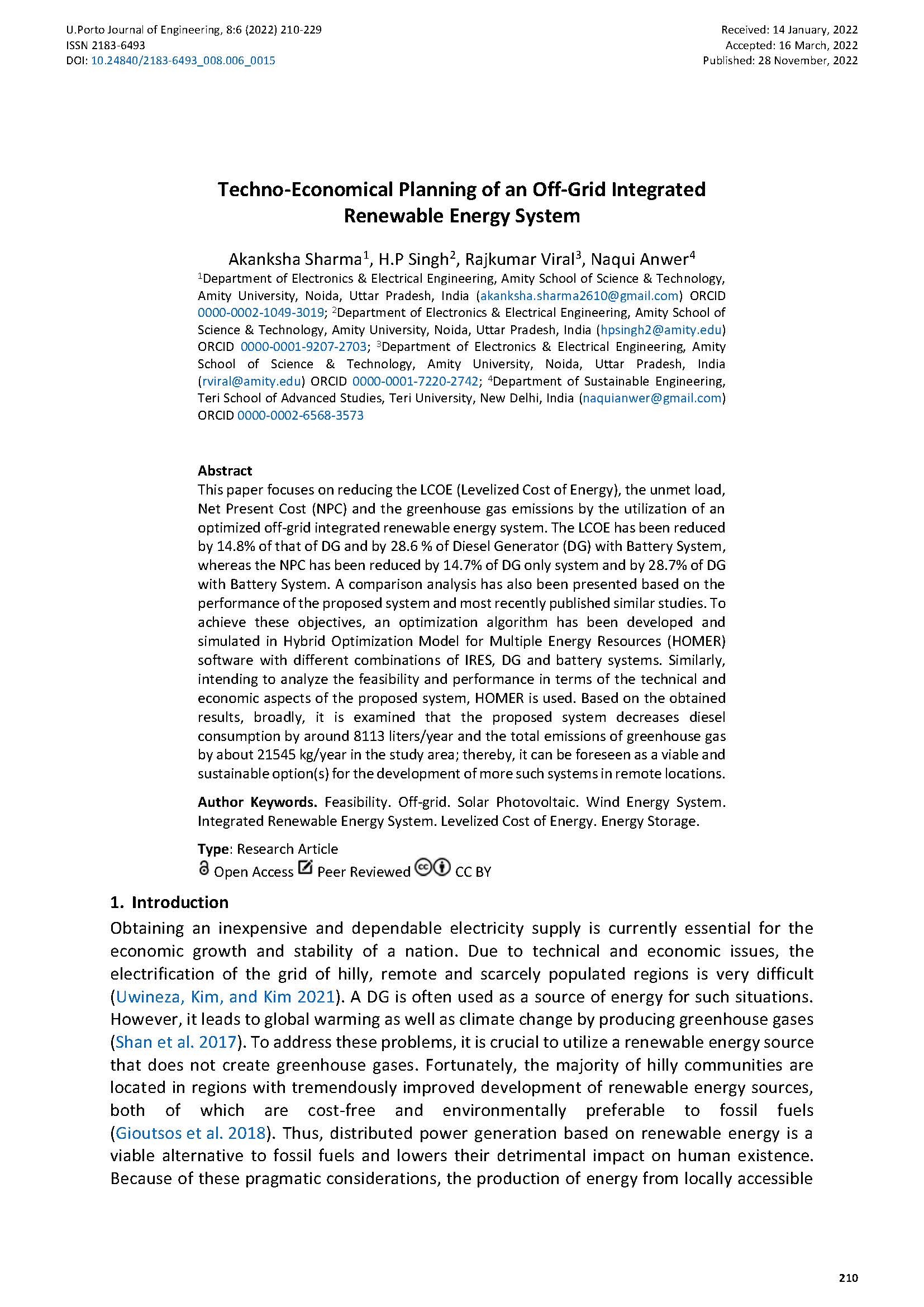Techno-Economical Planning of an Off-Grid Integrated Renewable Energy System
Main Article Content
Abstract
This paper focuses on reducing the LCOE (Levelized Cost of Energy), the unmet load, Net Present Cost (NPC) and the greenhouse gas emissions by the utilization of an optimized off-grid integrated renewable energy system. The LCOE has been reduced by 14.8% of that of DG and by 28.6 % of Diesel Generator (DG) with Battery System, whereas the NPC has been reduced by 14.7% of DG only system and by 28.7% of DG with Battery System. A comparison analysis has also been presented based on the performance of the proposed system and most recently published similar studies. To achieve these objectives, an optimization algorithm has been developed and simulated in Hybrid Optimization Model for Multiple Energy Resources (HOMER) software with different combinations of IRES, DG and battery systems. Similarly, intending to analyze the feasibility and performance in terms of the technical and economic aspects of the proposed system, HOMER is used. Based on the obtained results, broadly, it is examined that the proposed system decreases diesel consumption by around 8113 liters/year and the total emissions of greenhouse gas by about 21545 kg/year in the study area; thereby, it can be foreseen as a viable and sustainable option(s) for the development of more such systems in remote locations.
Downloads
Article Details

This work is licensed under a Creative Commons Attribution 4.0 International License.
Authors who publish with this journal agree to the following terms:
- Authors retain copyright and grant the journal right of first publication with the work simultaneously licensed under a Creative Commons Attribution License that allows others to share the work with an acknowledgement of the work's authorship and initial publication in this journal.
- Authors grant the journal the rights to provide the article in all forms and media so the article can be used on the latest technology even after publication and ensure its long-term preservation.
- Authors are able to enter into separate, additional contractual arrangements for the non-exclusive distribution of the journal's published version of the work (e.g., post it to an institutional repository or publish it in a book), with an acknowledgement of its initial publication in this journal.
- Authors are permitted and encouraged to post their work online (e.g., in institutional repositories or on their website) prior to and during the submission process, as it can lead to productive exchanges, as well as earlier and greater citation of published work (See The Effect of Open Access).

